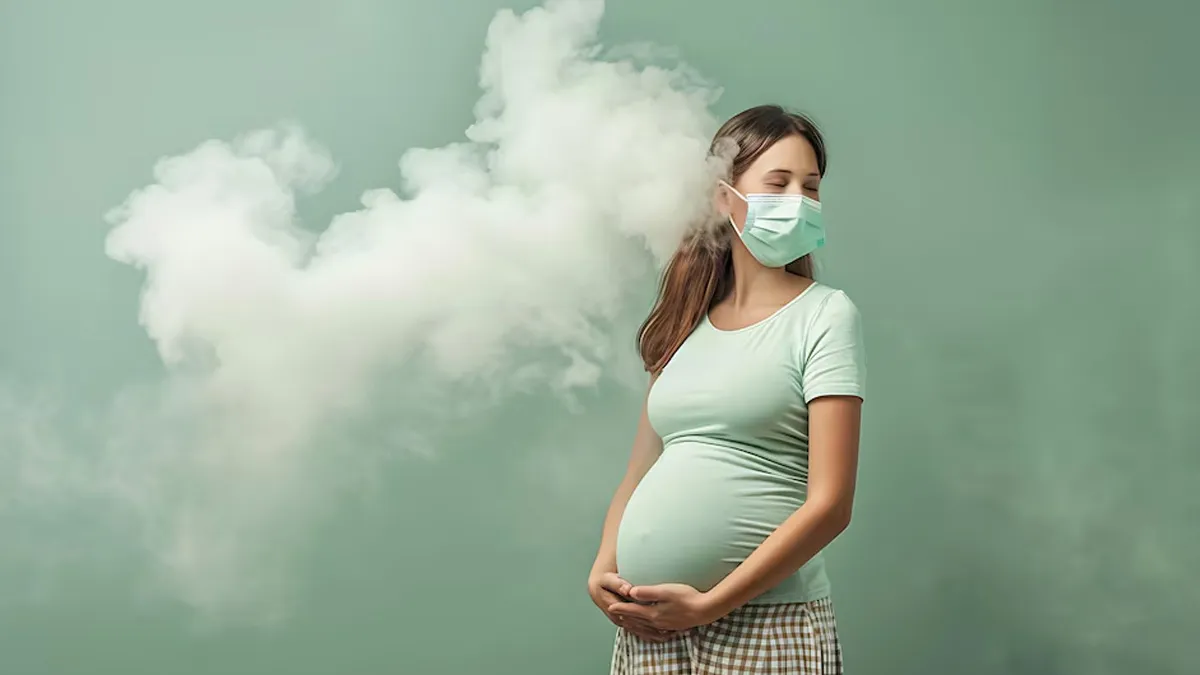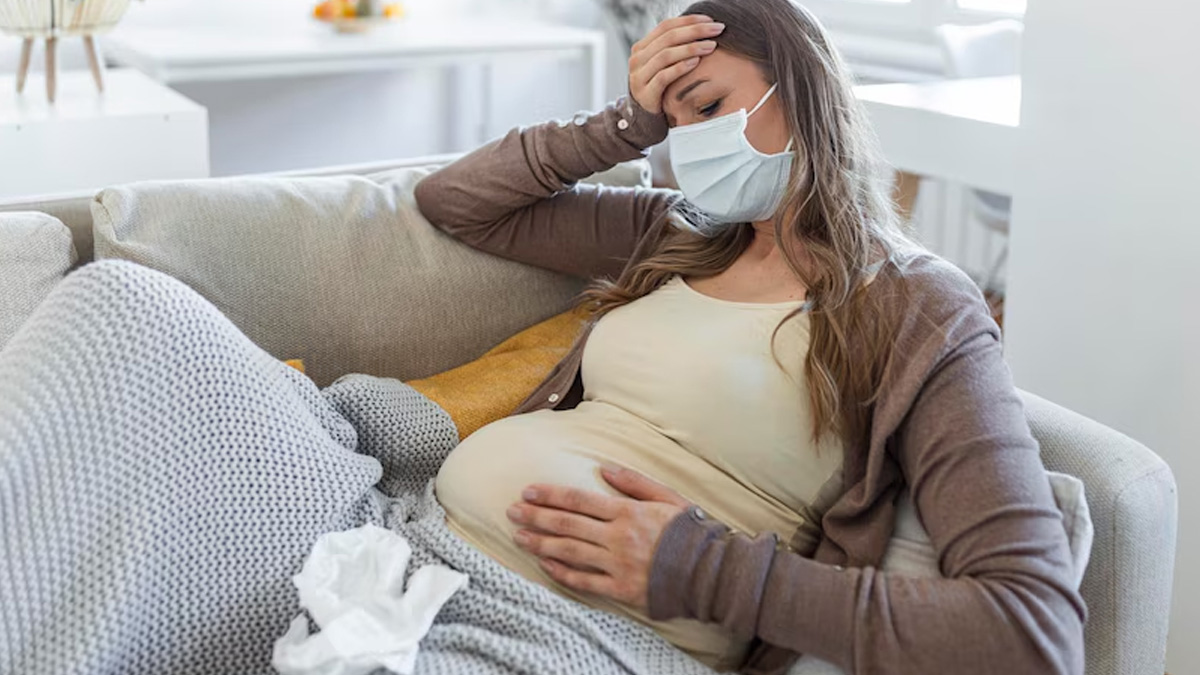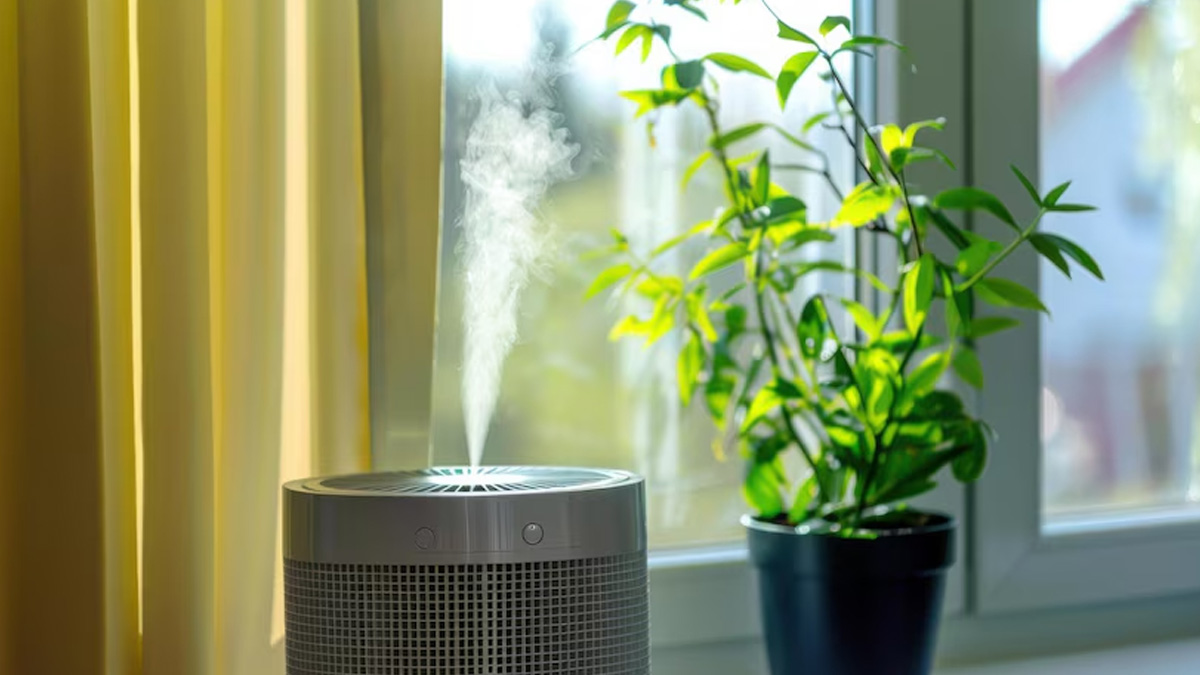
For the last couple of weeks, many parts of North India, particularly Delhi and the NCR, have been wrapped in a thick, white blanket of smog. The Air Quality Index (AQI) repeatedly touched 600 and beyond, a level considered severely hazardous. People woke up every morning with burning eyes, scratchy throats, headaches, and persistent coughs. While the situation is troublesome for normal people, it is particularly more alarming for pregnant women.
Table of Content:-
To understand how toxic air affects pregnancy, we spoke to Dr Vaishali Sharma, Senior Gynecologist and IVF Specialist, Apollo Cradle, Panchsheel Park, Delhi, who informed us that exposure to poor AQI is not just uncomfortable, it interferes with fetal development and maternal health. Therefore, knowing how poor air quality can disturb your pregnancy is very important to manage and maneuver your way through a healthy pregnancy.
Ways Poor Air Quality Can Disturb Your Pregnancy
According to Dr Sharma, following are a few ways poor air quality can disturb pregnancy:
1. Higher Risk of Preterm Birth
The polluted air contains minute particles such as PM2.5 and PM10, which reach the blood upon respiration. This leads to inflammations and release of stress hormones, which might increase the risk of preterm labor in expecting mothers. Preterm babies have to remain in NICU and also have higher long-term developmental and respiratory issues.

2. Low Birth Weight
The toxic pollutants interfere with the nutrient and oxygen supply to the fetus. This results in poor growth of the baby inside the womb. According to Dr Sharma, low birth weight babies are prone to problems like weak immunity, difficulty in feeding, and developmental delays.
3. Increased Risk of Gestational Hypertension
Poor air quality is associated with causing damage to blood vessels, thereby increasing blood pressure. Pregnant women exposed to bad AQI are highly susceptible to gestational hypertension or even preeclampsia, conditions that may be life-threatening if not monitored and treated on time.
4. Higher Risk of Miscarriage
Dr Sharma explained that the longer the exposure to toxic pollutants, particularly during the first months of pregnancy, the higher the risk of miscarriage. Such substances as sulfur dioxide, nitrogen dioxide, and carbon monoxide may interfere with the implantation of the embryo and normal hormonal balance.
5. Respiratory Problems in the Mother
Experts share that even otherwise healthy people are coughing or feeling short of breath in Delhi today. “In pregnant women, the lung capacity is anyway compromised owing to hormonal changes. Polluted air can aggravate bronchitis and asthma, besides leading to severe chest congestion, thereby severely reducing oxygen levels available for both mother and baby,” Dr Sharma noted.
Also Read: From Pregnancy To Menopause: Why Pelvic Floor Therapy Is Key to Women’s Health

6. Impaired Placental Function
Recent research indicates that soot and pollution particles can cross from the mother's lungs into the placenta. According to Dr Sharma, these particles may affect how well the placenta supplies nutrients and oxygen to the fetus, increasing complications and affecting overall fetal development.
7. Increased Maternal Stress
Poor air quality restricts outdoor movements. Pregnant women feel it is impossible to stay outdoors, even to take walks or go to the doctor without some fear of pollution. This might raise stress levels, further affecting hormonal balance, sleeping, and general emotional well-being.
How to Reduce Exposure to Polluted Air
If you or someone you know is pregnant, here are some expert-apporved recommendations to redacted your exposure to polluted air :
- Staying indoors as much as possible on days of severe pollution.
- Using air purifiers at home.
- Wearing N95 masks while stepping out.
- Indoor plants like areca palm, aloe vera, and snake plant should be kept.
- Keeping hydrated and adding antioxidants to diet, such as fruits, nuts, and green tea.
Bottomline
Air pollution is all the way more harmful to pregnant women. It t directly affects the journey of pregnancy and the development of the baby. Therefore, being aware and prioritising preventive care are important until the air gets cleared.
Also watch this video
FAQ
1. Does poor air quality harm the baby during early stages of pregnancy?
Yes, first-trimester exposure interferes with embryo implantation, thus increasing the risk of miscarriage.2. Is it safe for pregnant women to wear N95 masks?
Yes, N95 masks are safe and recommended since they block harmful PM2.5 particulate matter.3. Do indoor plants contribute to improving indoor air quality for pregnant women?
Indoor plants do reduce toxins to some extent, but they should be combined with air purifiers for best performance.
How we keep this article up to date:
We work with experts and keep a close eye on the latest in health and wellness. Whenever there is a new research or helpful information, we update our articles with accurate and useful advice.
Current Version
Nov 11, 2025 12:05 IST
Published By : Tanya Srivastava
